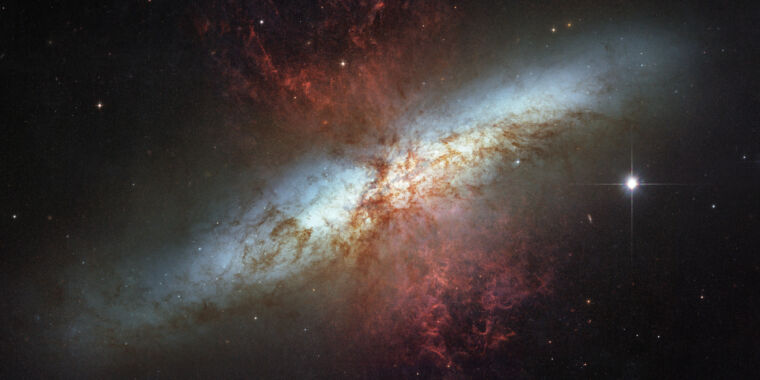Discovery of a Magnetic Astrophysical Phenomenon
The universe is a vast and enigmatic space that continues to fascinate astronomers with its mysteries. Among the various phenomena observed in the cosmos, gamma rays stand out as high-energy photons that reveal intriguing events. These energetic particles, more powerful than X-rays, are often associated with processes like radioactive decay.
Astronomical Origins of Gamma Rays
While gamma rays are known to originate from various sources such as black holes, neutron stars, and supernovae, their detection from other galaxies poses a significant challenge due to the scarcity of such events. However, astronomers have identified specific astronomical occurrences capable of producing detectable gamma rays, shedding light on the mysteries of the universe.
One such phenomenon is the presence of magnetars, neutron stars with exceptionally strong magnetic fields that can emit intense bursts of energy, including gamma rays. These cosmic entities, characterized by magnetic fields thousands of times more powerful than the Sun’s, have the potential to generate spectacular flares that illuminate the cosmos.
Unveiling the Burst
In a recent astronomical discovery, the ESA’s Integral gamma-ray observatory detected a short burst of gamma rays named GRB 231115A in November 2023. This transient event, lasting approximately 50 milliseconds, was pinpointed to the starburst galaxy M82, renowned for its prolific star formation activity.
The researchers investigating the burst employed sophisticated analytical techniques to rule out extragalactic origins, attributing the gamma-ray emission to a potential magnetar giant flare within M82. Despite the lower energy output compared to classical gamma-ray bursts, the event’s unique characteristics hinted at a distinct mechanism responsible for the gamma-ray radiation.
Expanding Astrophysical Insights
The quest to comprehend the gamma-ray production mechanism in magnetars remains a focal point for astronomers, with the rearrangement of neutron star crusts due to intense magnetic forces being a prevailing hypothesis. The monumental energy release associated with magnetar flares underscores the astronomical significance of these events, offering a glimpse into the cosmic forces at play.
Furthermore, the identification of additional magnetar-related events in starburst galaxies like M82 could provide invaluable insights into these rare phenomena and advance our understanding of gamma-ray astrophysics. By leveraging new observational techniques and focusing on target-rich environments, astronomers aim to uncover the elusive nature of magnetars and their role in shaping the universe.
Implications for Astrophysical Research
The implications of these findings extend beyond the realm of theoretical astrophysics, offering a practical roadmap for future observations and investigations. By developing robust methodologies to distinguish magnetar-induced gamma-ray bursts from other sources, astronomers aim to establish a comprehensive framework for unraveling the mysteries of cosmic phenomena.
As researchers continue to explore the depths of space and unravel the secrets hidden within the universe, the discovery of magnetar-related gamma-ray events serves as a testament to humanity’s relentless pursuit of knowledge in the cosmos.
Reference: Nature, 2024. DOI: 10.1038/s41586-024-07285-4
Image/Photo credit: source url





